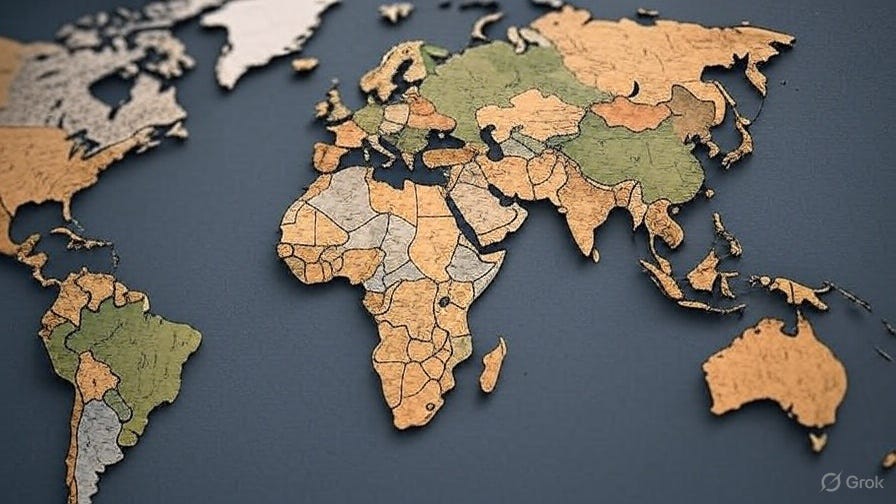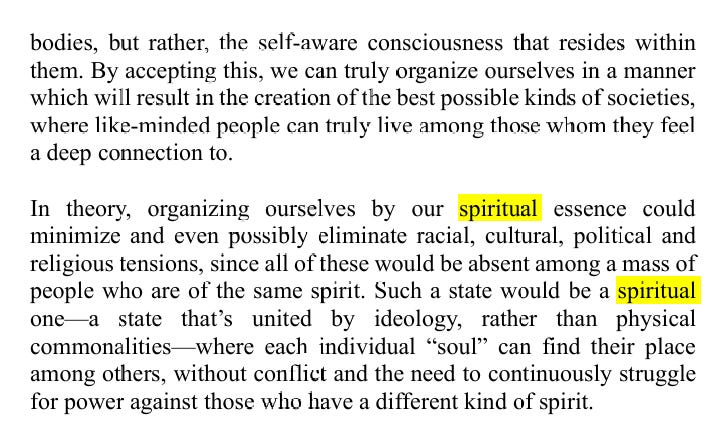Introduction to Unifism
Previously, I posted an article about an idea called “neofederalism,” but the issue is that term describes the ideas that Sam Parker and I have been discussing over the last two years. In fact, neither of us can remember who exactly coined the term—I lean more toward Sam coming up with it—so I didn’t want to name my ideology something that he coined. Furthermore, neofederalism is a set a prescriptions or a policy to help restore the American republic, not an ideology in and of itself.
Although he and I disagree on a few things, the direction we think America should go is virtually the same—how we get there is another story.
Within the neofederalism article shared something I did coin: “ethostates.” Those of you following me for years know I have been discussing the idea of establishing “ideologically homogenous states” as a prescription to give sovereignty to the diverse people of this country. Neofederalism will be the framework to enable that idea; however, the idea of how the states should be formed is based on my idea of creating ethostates. This idea was born in 2020, when I first mentioned the prototype of such a state in my book, Thoughts and Reflection on Life:
I alluded to them being called “spiritual states.” This term is corny and didn’t capture my idea entirely, but the idea is the same as ethostates: we should organize and live among people we agree with; that political diversity is the main issue.
But what do I call this idea of mine?
I’ve been going back and forth with Grok, coming up with names like “Ethostatism” or “Axionism,” (axios is Greek for value) but ironically, the name I decided to go with was something I created when I was still in high school: “Unifism.”
But back then, Unifism meant something completely different: After 9/11 happened, my idea was American globalism on steroids, with us taking out all enemy states hostile to our country, and unifying the world for the greater good.
Anyway, twenty-five year later, after learning about jewish supremacy and how the world works, I can finally apply my term to something better, and use it properly; thus, I have decided to stop playing around with all other possibilities and settle with a term that seems I was destined to use.
The following is the summary of Unifism:
Unifism is a political ideology advocating for the foundation of “ethostates”—one-party states unified by a shared ēthos (values, customs, or moral outlook). It rejects multiparty states because they create instability due to their political pluralism.
Unifism emphasizes voluntary association, organizing states based on its three-pillar system: politics, race, and faith, offering practical guidance to those in diverse cultural contexts.
The Perfect State is the pinnacle example of the Unifist philosophy, whereas the the Multiparty State is a cautionary example to avoid.
The ethostates, shaped by politics, race, and faith, are:
Perfect Ethostate:
Politics: Homogeneous.
Race: Homogeneous.
Faith: Homogeneous.
Culture: Cohesive, shaped by uniform ēthos.
Multi-Race Ethostate:
Politics: Homogeneous.
Race: Diverse.
Faith: Homogeneous.
Culture: Unified by political and faith-based ēthos, with diverse racial influences.
Multi-Faith Ethostate:
Politics: Homogeneous.
Race: Homogeneous.
Faith: Diverse.
Culture: Ethnically cohesive with varied religious practices, unified by political ēthos.
Multicultural Ethostate:
Politics: Homogeneous.
Race: Diverse.
Faith: Diverse.
Culture: Pluralistic, shaped by diverse races and faiths, unified by a dominant political ēthos.
Multiparty States:
Rejected in all their forms, as Unifists advocate for cohesive, value-driven societies, opposing multiparty fragmentation.
So, this is the final form of my political ideology, Unifism. I made add another word before it like “National Unifism” or “Sovereign Unifism” in the future, or when it applies to America, “Neofederal Unifism,” but the main term will be “Unifism.” Why? Because Unifist states can be created within the neofederalist framework that Sam Parker and I are currently developing and intend to expound upon in the near future. They also can be established as their own nations, anywhere else in the world, which is why neofederalism, an American ideology, is not the proper name for my ideology.



